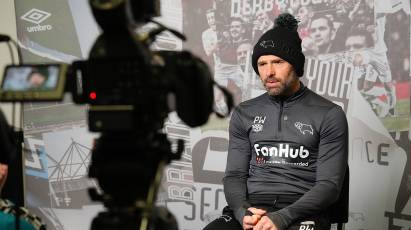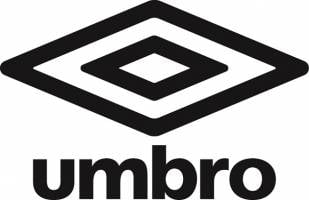Let’s cast our minds back half a century. It will be impossible for some, of course. Many of our readers may not have even been born when referee Bill Gow blew for full time at Molineux as Wolverhampton Wanderers beat Leeds United 2-1 in May 1972. What did it signify? Well, although the result didn’t directly involve Derby County, it ensured a truly momentous occasion occurred. Derby County were First Division champions. They had won it for the first time in their history.
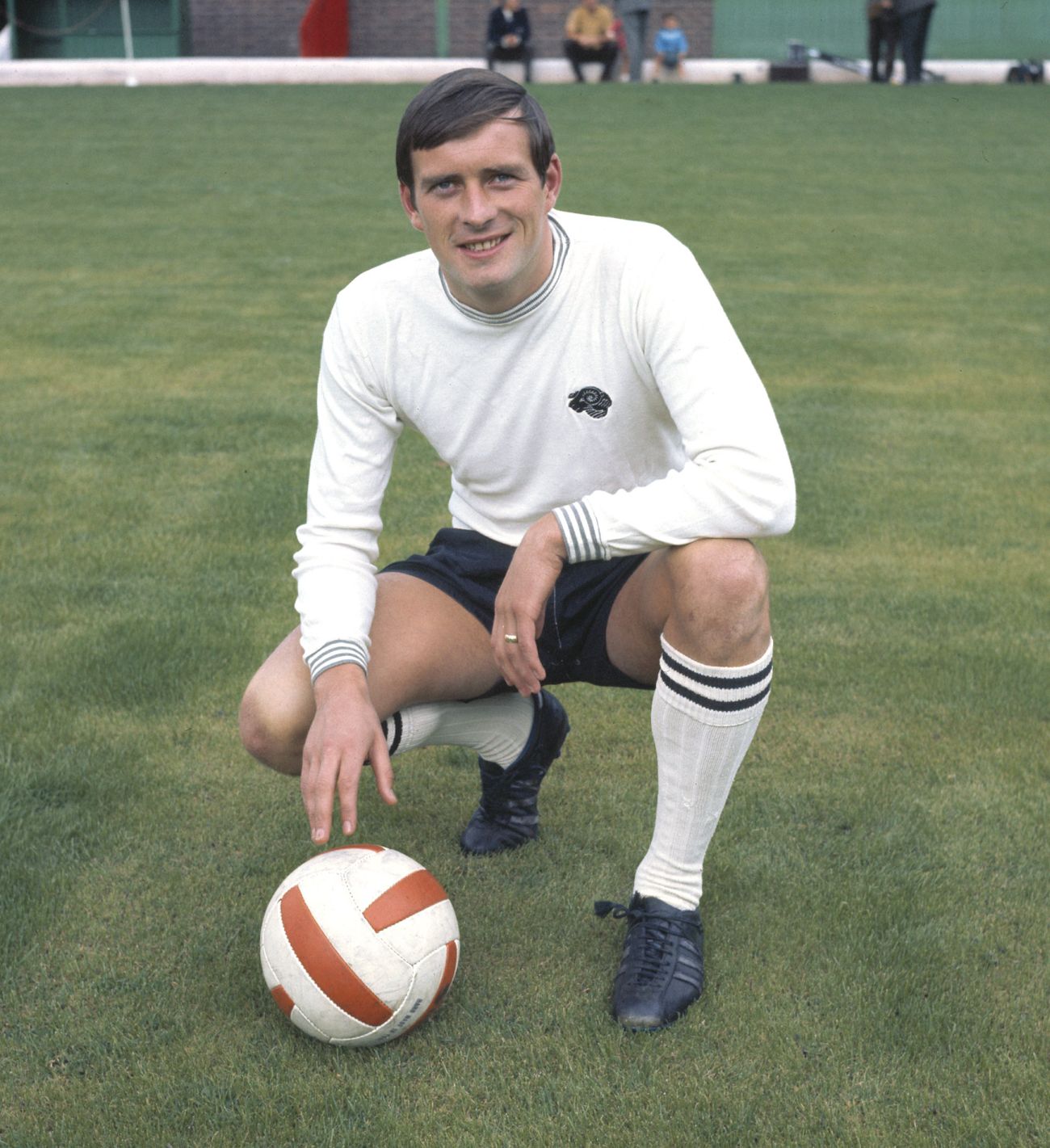
John O’Hare knows where he was on that day. He was, let’s say, sampling the fine ales which Majorca had to offer, frantically trying to find out if they had achieved the unthinkable. Only the day after did he learn he was a champion. Technology has advanced since, thankfully, but his memory over the years has become hazy, as you can imagine. Fifty years is a very long time to remember the intricacies of a season, especially after the beers drank on that infamous trip abroad, but there is no doubt in his mind that his side deserved to be league champions that season.
It wouldn’t be Derby County without drama, however. The Rams are accustomed to doing things the hard way over the years. They had to rely on favours from teams around them to lift the title, and results at Wolves and Arsenal meant Derby were able to toast a title-winning season. O’Hare spoke to dcfc.co.uk to recall that remarkable campaign where Derby County took on the big boys and came out victorious.
“I can’t believe it’s been fifty years. At the time, you never think you’re going to live this long. I’m amazed I’m still here, but they were great times,” O’Hare explained in his strong Scottish tones. “When you don’t remember much of it, it does feel like a long time ago. I remember quite a bit about it but there is a lot about my football which I don’t remember, just because it is so long ago! It was the best days of my career, there is no doubt about that.”
The former striker, now 75 years of age, has very fond memories from those famous, glory days. Of course, some memories fade over the years and decades, but when discussed, it all starts to flood back. At only 25, he was a league winner. But how did he get there? It was all down to one man. Brian Clough.
O’Hare was one of Clough’s first signings at Derby County in 1967 and he went on to play an instrumental part in the club’s promotion back to the top-flight in the 1968/69 campaign. Derby lost only five games on their way to become Second Division champions, and then they were back in the big time.
“He was definitely different,” O’Hare laughed when remembering his former manager. “I knew him as a player at Sunderland. I was a young player when he was in the first team and he just oozed confidence and rightly so, too. He was an incredible goalscorer and had been all his career. He got injured on Boxing Day against Bury in the first season I was there, and that finished his career, but he had already scored 28 goals by that time. Even as a young lad coming down from Scotland, I realised his personality because he was so brash, he was really confident. He had scored all these goals and had great belief in himself and had an arrogance, but he backed it up.
“He got injured and to pass a bit of time he started to take the youth team for the Youth Cup games. I was a midfield player when I was a youngster. I used to play outside left, right half, or outside forward and Cloughie just stuck me up front and it worked for him. I got in the Sunderland side, but I was more of an inside-forward and then when he took me to Derby, he stuck me up front as the number nine. I don’t think I would have been as good a midfield player as I was a front man. He seen that in me and that was it for the rest of my career.
“The self-belief he gave me was huge. He was so confident in me and he just wanted me to do the basics well. He told me to do what I was good at. One of his secrets was having really well balanced football teams. I really do think that he had people in positions who could just do their job and we knitted well and suited each other and that’s what he was really good at.
“He was never much of a coach. We never practised free kicks or set pieces, we just used to do our running, five-a-sides and bits like that, so he never really got into tactics with anybody. It worked well really because it was something we didn’t have to worry about because he kept it simple. He wanted me to show myself, get hold of the ball and bring other players into play.
“He wanted us to play football when we could, but he just wanted us to do the basics right. We didn’t have stuff in our heads about what other people were doing, what might happen or what you expect to happen, what he expected us to do was to do what we were good at and that’s why we were there because we could do our jobs.”
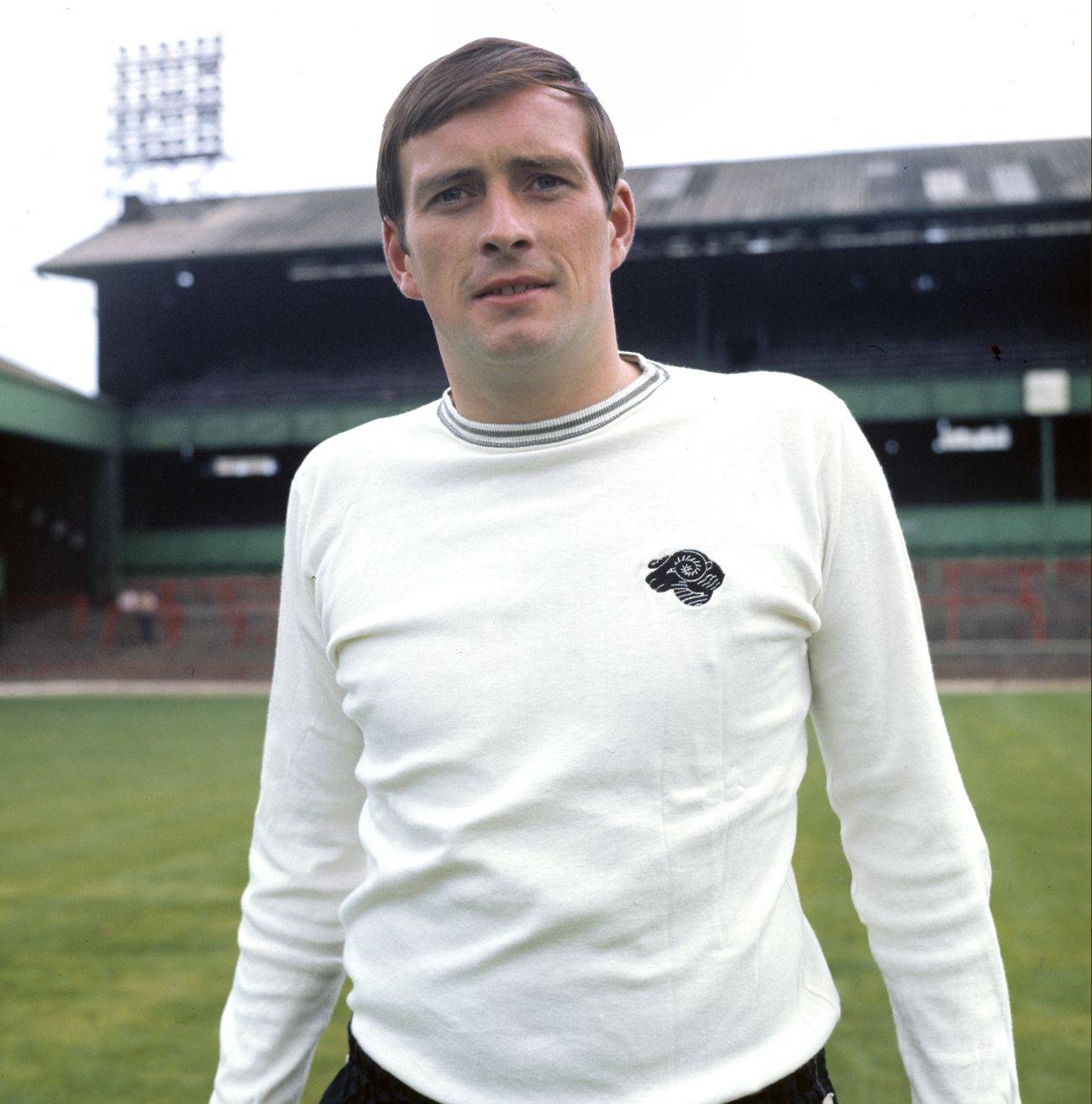
And it worked, too, because the club’s rise didn’t just stop when they got into the top division. The Rams solidified their status in the First Division, finishing fourth ahead of the likes of Liverpool, Manchester United and Manchester City during the 1969/70 campaign, but suffered a blip as they could only finish ninth the following season.
That brought about change as the experienced and ever dependable Dave Mackay moved on to pastures new. He would leave the Rams having helped the transformation from Second Division strugglers to First Division challengers. Archie Gemmill had already arrived from Preston North End in 1970, but the signing of Colin Todd from Sunderland at the start of the 1971/72 campaign really gave everybody a lift.
“Dave Mackay was one of the greatest players but he would have been about 36 at the time and was getting on a bit,” O’Hare said. “We lost him, which wasn’t great because he was a great player and a great leader, but when you have players coming in like Toddy, who brings another level of defending, and Archie then you are going in a good direction. Those two players were the only real changes in those two or three seasons in the top flight, the rest had been with us since the Second Division title days, so it just showed how good the team was.”
Clough had put together a bright team which displayed a lot of flair. His assistant, Peter Taylor, was instrumental, too. His eye for a player was impeccable and he had the trust of Clough when it came to recruitment. On paper, the Derby team picked itself. There weren’t many players to choose from, but, half a century ago, there wasn’t a need for inflated squad numbers. Clough and Taylor wanted to work with a small squad and keep things consistent. O’Hare was one of those names which remained on the teamsheet and he believed that worked well for the pair.
“It was an advantage to work with a smaller squad because we were all familiar with each other and how we played the game,” he explained. “We knew that if we avoided injuries then we would be okay, but if there were injuries, that could have made a difference. I think generally most football clubs back then wouldn’t have had more than 16 players. Today they can make three and five substitutes, whereas back then you could only name one, so you didn’t really need that many players.
“We had a reserve team who had some good players in it as well. They may not have been part of it much, particularly in that season, but if there had been injuries, one of the reserve players would have been given some games. Fortunately, injury wise, nobody really suffered anything serious but we did know that if someone did then there would have been someone there to make the step up and come in.
“The team hardly ever changed. It was always: Boulton, Webster, Robson, Durban, McFarland, Todd, McGovern, Gemmill, O’Hare, Hector, Hinton. Frank Wignall played five or six games, someone else might have come in when someone was injured but it rarely changed. There were no weaknesses in that squad, it was just a really well balanced team.”
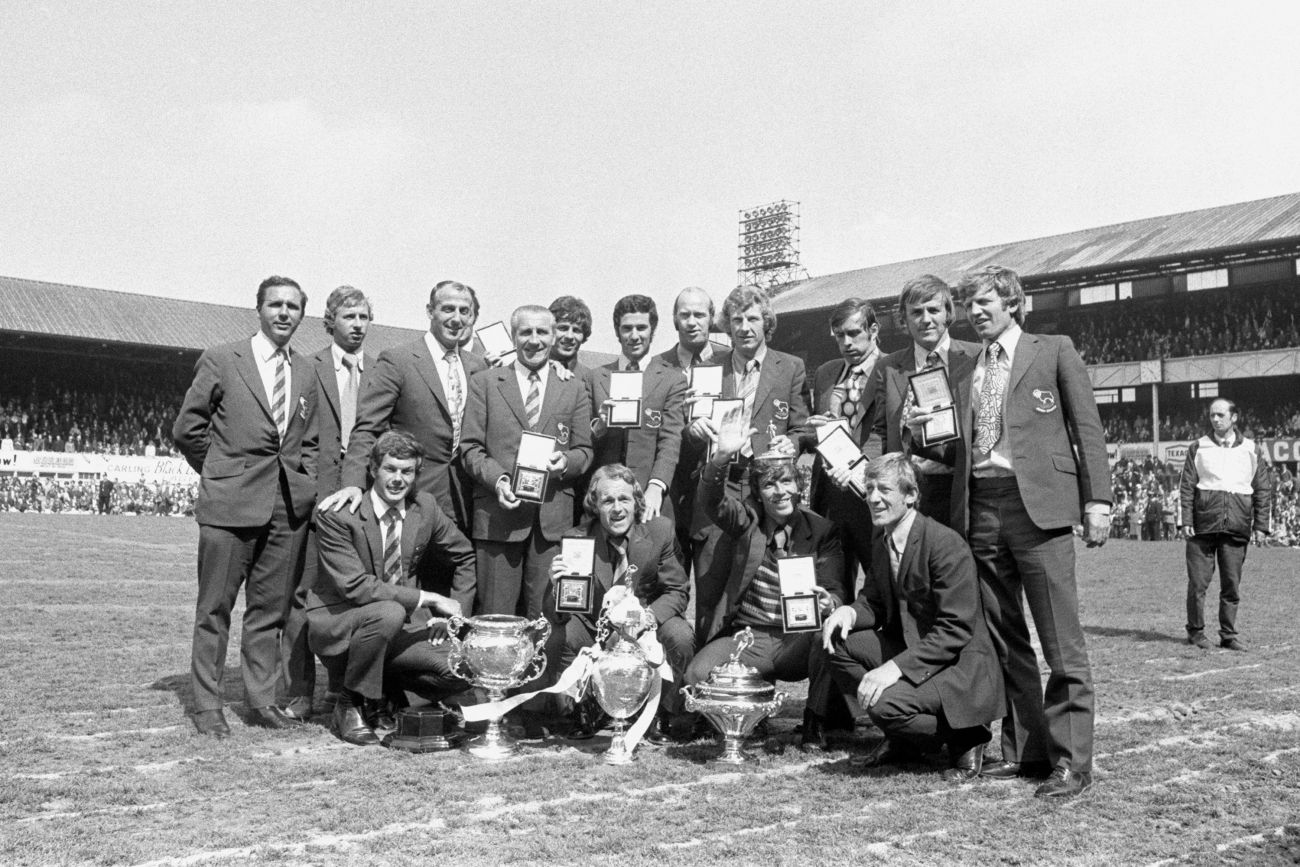
Like the squad of 1946 which won the FA Cup, the class of 1972 were all household names. You only have to say their last name and everybody knows who you are referring to. And O’Hare was part of that squad. He was working with good players who brought the best out of him.
“Kevin Hector and I were up front, I was the front man and Kevin was just around me with his electric pace going past people,” he recalled. “Alan Hinton was a tremendous crosser of a ball. It was usually a 4-3-3, Alan Durban was an attacking midfielder, John McGovern was a holding midfielder and would just play it and then we had Archie who was like Kevin. He was so quick and probably the fittest footballer I’ve ever seen.
“Then, you look at the back four. Ron Webster was totally reliable, a very good defender and could smell danger. He read the game so well and was a really good player. McFarland and Todd, what else can you say about those two? They were the very best. John Robson was a young lad, a jack the lad, but he liked to get forward. He was a right-footed left back. He could play with both feet but primarily he was right-footed and he loved getting into forward positions. He would overlap Alan Hinton and it was a really balanced squad. They were all really good players.
“McFarland and Todd, at the time, I don’t think there were a better centre half pairing in the world. Toddy had amazing pace and if you have that at the back, along with Archie Gemmill in the middle of the park and Kevin Hector up front, there are three people who are extremely quick and pacey players, and then you have players around them who are brainy footballers.”
With the squad fully assembled, Derby started the season well. It wasn’t magnificent, but they had momentum. Five wins and seven draws in their opening 12 games ensured an unbeaten start, before they were beaten by Manchester United at Old Trafford in mid-October. But, they responded well and three consecutive wins against Arsenal, Nottingham Forest and Crystal Palace.
On a personal level, O’Hare had started well, too. He had scored his first of the campaign in only the second game of the season as the Rams beat West Ham United at the Baseball Ground 2-0, whilst he notched goals against Coventry City, Stoke City and in the victory over Arsenal in October. That early season form saw other clubs sit up and take notice of Derby, whilst inside the camp, the self-belief amongst the players started to grow.
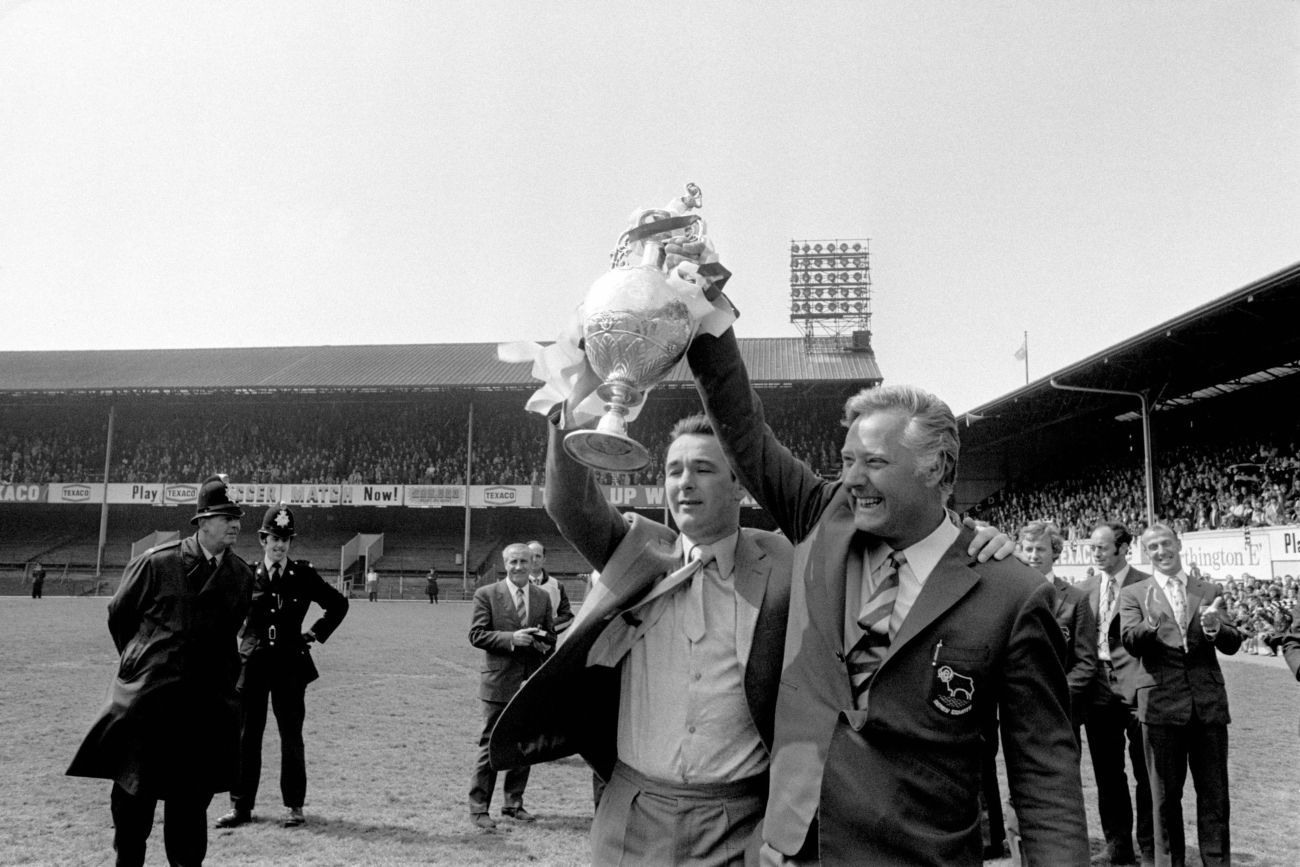
“We didn’t lack confidence,” he smiled. “We knew we were a team that could challenge at the top. The fans believed that and Clough and Taylor definitely believed that, and us as a team certainly believed that. We were a top level team and we knew we would be close.
“We were good defensively and we were a decent team who could compete at the highest level against the best teams. At the time, Leeds United were probably accepted as the best team in the country, so that was what you had to aim at to get to that sort of level. They had a super team and for four or five years, they were probably the best team in Britain, but that was the competition.
“If you go back to those days, Manchester City weren’t that big then, but they were still at the top. Liverpool were up there as well and even below the top four were very good teams as well, the likes of Arsenal, Tottenham Hotspur, Chelsea and Manchester United. When you look back at the teams, it makes you realise that you were pretty good!”
After suffering four defeats during November and December, Derby regained their focus heading into the new year as their form picked back up. One of the key reasons behind Derby’s success was the Baseball Ground. Derby enjoyed some big wins on home turf, having beaten Manchester City, Everton and Chelsea, whilst local rivals Nottingham Forest were put to the sword 4-0 in February 1972. O’Hare was once again on the scoresheet that afternoon and he loved playing in front of the adoring Rams crowd.
“The atmosphere at the Baseball Ground was just incredible,” he said. “I don’t think many teams looked forward to playing at the Baseball Ground because it was tight, the touchline was near the crowd and it wasn’t the best ground as an opposition player but atmosphere wise it was great. The state of the pitch meant it was a place that teams didn’t like coming to.
“The stands felt so high and you were so enclosed and it was always great for us. It gave us some advantage and it was tremendous. The really big teams like Leeds were used to that sort of thing, though. It wouldn’t have phased them much because they were a big club with big players, but the lesser teams used to be scared of coming to the Baseball Ground. It certainly helped us.”
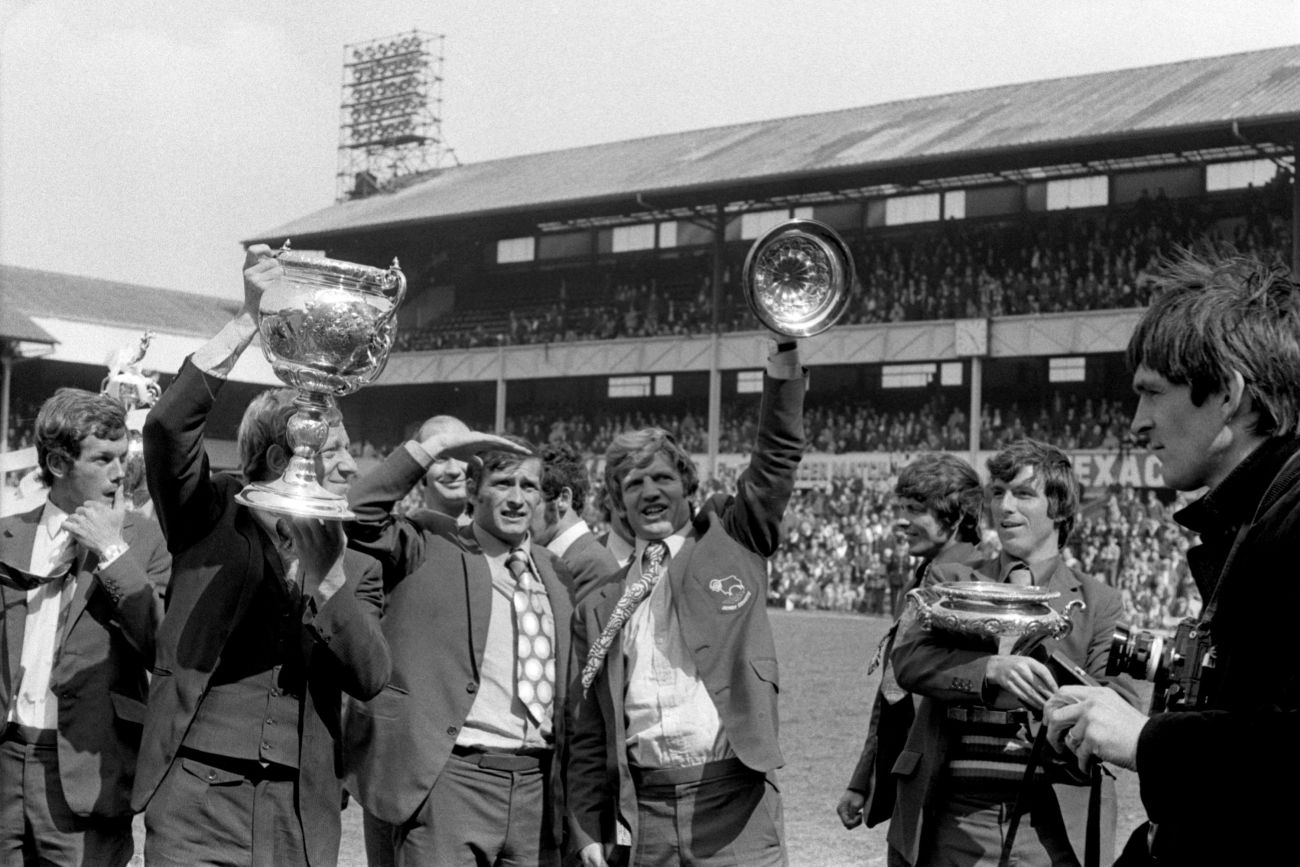
O’Hare once again hit the back of the net in a 3-0 victory over Leicester City in March of that year which extended their winning run to four games, and they took seven points from their next three games to give them the advantage at the top of the table. Their next test? Leeds United. It was Saturday 1st April at the Baseball Ground. The Match of the Day cameras were set up, the fans were in buoyant mood and the players were confident heading into their biggest game of the season against their title rival. O’Hare gave Derby the most perfect start in the game.
“I do remember that goal, vividly,” he remembered. “When people ask me about goals, there aren’t really many that I remember. Honestly, I can only probably remember a handful of goals over my career, but I do remember that one because it was against Leeds United. I remember the ball was on the left-hand side, Alan Durban crossed and it was a near post header from me. I got up well - I wasn’t the tallest guy, but I was always a decent header of the ball - I got up at the near post and scored well.
“Then, for the second goal, I had gone clear. Kevin Hector picked me out, the goalkeeper made a decent save and it’s gone and bounced off Norman Hunter and gone in so I hand in that one as well. It was a big goal in a big game, and to beat Leeds towards the nitty gritty end was a big win at a good time.”
However, two days later, still on a high from beating Leeds, Derby were brought straight back down to earth as they were beaten on home turf.
“We lost to Newcastle United on Easter Monday, which was a really huge blow to us at the time because it was a game we were expected to win,” O’Hare said. “We didn’t think we had blown it completely. It was still tight and we had a good chance but it was definitely an opportunity missed.”
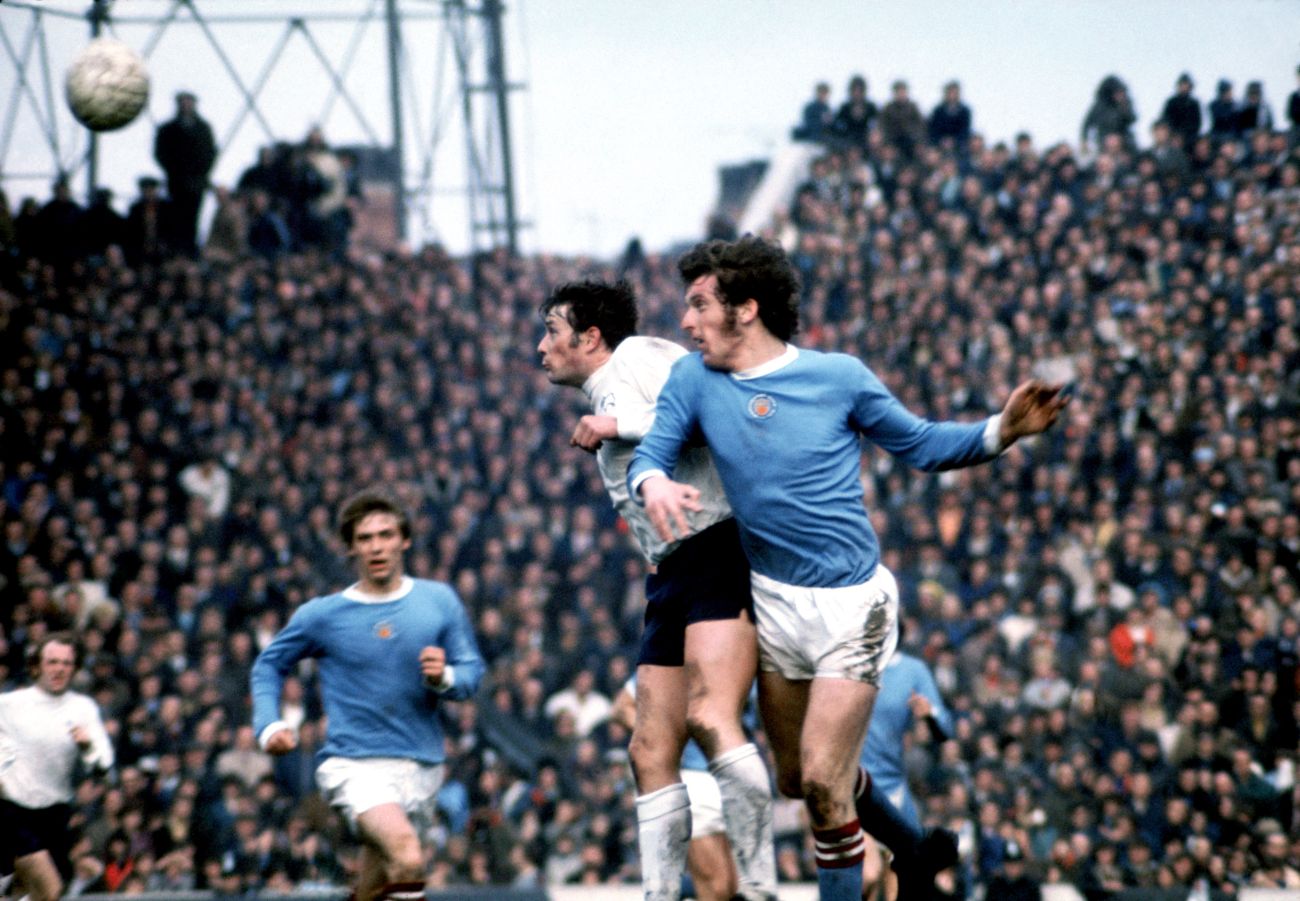
And when the Rams could only produce a goalless draw against West Bromwich Albion, hopes of securing the title were dwindling. They needed good performances against Sheffield United and Huddersfield Town to put them back on track, and they obliged. A 4-0 success at Bramall Lane was followed by a 3-0 victory over the Terriers at the Baseball Ground, and it ensured the Rams would be in contention for the league title with two games remaining.
However, the final two games presented a daunting task as they faced Manchester City and Liverpool, both of whom were chasing the league title along with the Rams and Leeds United. It was a four-horse race, but with teams finishing their seasons at different times, it made for a confusing conclusion to the season. Manchester City, who were playing their final league game of the campaign, knew they needed to beat Derby to stand any chance, but would have to rely on results elsewhere, whilst Derby knew victory would put them in pole position.
But, the Rams couldn’t earn all maximum points. They lost, comfortably, and went down 2-0 at Maine Road which sent them to third in the table.
“That was another one where we thought we had blown it,” O’Hare said. “After we lost at Manchester City, we knew we had to beat Liverpool. We couldn’t draw so we knew we had to beat Liverpool at home. I remember feeling down after the Manchester City defeat. We thought we had blown it and it would be difficult now and we knew we were relying on others and things needed to go our way. If my memory serves me right, I don’t think we played particularly well at Manchester City. It wasn’t a good performance.”
It temporarily put City to the top of the tree, but due to results elsewhere and with Derby facing Liverpool in their final game of the season, it meant City could not win the title. Derby’s job was simple. They knew they had to beat Bill Shankley’s side, and with both Liverpool and Leeds United concluding their seasons the following week, it meant victory for Derby would put them top of the table going into the final stretch.
All eyes were on the Baseball Ground on Monday 1st May. One month previous, Derby had risen to the occasion and beaten Leeds United. Clough’s side knew they needed a similar performance. And early into the second half, the Rams made the breakthrough as John McGovern scored the game’s opening goal.
“I do remember the game and the goal in particular,” he reflected. “It was right in the top corner. I remember it came to him on the edge of the box and he hit it and it couldn’t have been placed any better. It was a good strike from John and we managed to dig in and get over the line. That was a game that we had to win to have any hope of winning the league. When we did that, it was elation but we knew we wasn’t there yet. We were still dependant on other results and things going our way.
“It meant we were top of the league, but I don’t think any of us believed that we were going to win the league. Liverpool had a league game left and only needed to win against Arsenal. It would be a tough game but you would have fancied them, and if you were a gambling man, you would definitely have fancied Leeds United to get a result at Wolves, and they only needed a draw.”
With nerves a plenty, and with the players and management staff not able to influence anything, they jetted off on an end of season holiday together. Clough didn’t go, he went to the Isles of Scilly with his family whilst Roy McFarland and Colin Todd went away with England. It was a trip they all needed, especially after a gruelling campaign where they had given so much. They were going to enjoy themselves, too.
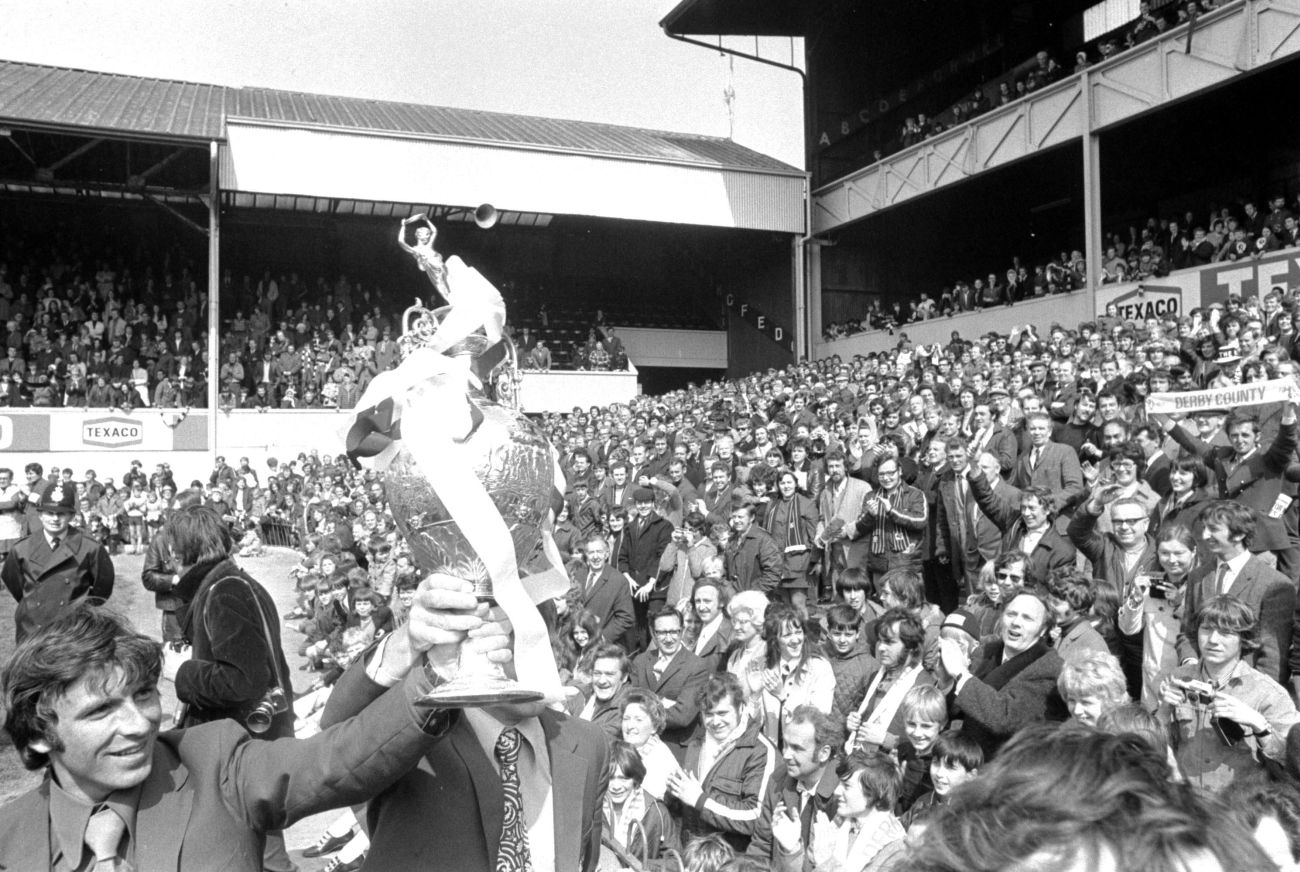
“A lot of beer was consumed on that trip so my memory isn’t quite all there,” laughed O’Hare. “In those days, most of the lads liked a beer and it was a normal thing after the game at the Baseball Ground to go upstairs into the hospitality lounge and have a couple of beers. That was part of it and times have now changed, but having a few beers was the norm. It certainly wasn’t frowned upon and Cloughie wouldn’t mind you having a few as long as it was at the right time. On a Friday night, we used to stay at the Midland Hotel and he didn’t mind us having two or three halves or beer - as long as you didn’t overdo it - so it wasn’t a bad thing. In Majorca, though, we had more than two or three halves, I can tell you that!”
To pass the time in the week, some of the players took on the Spanish waiters in a kickabout. It did get serious at times, according to O’Hare, but there weren’t any injuries reported, thankfully. And, come the Monday night, everyone knew what the situation was. Leeds needed a point to overtake Derby, whilst Liverpool knew a win could see them crowned champions should Don Revie’s side drop points against Wolverhampton Wanderers. It was nervy. Too nervy for some.
What happened that night will live long in the memory of Derby fans. Many would have crowded around their radios as the rollercoaster took many twists and turns, but frantically in a Majorcan hotel room, the Derby players were struggling to find out the results.
“There weren’t any mobile phones back then and getting the message back took ages,” O’Hare said. “Peter Taylor was trying to get through to people but didn’t manage to, so we didn’t know if we had done it or not. It was actually the next morning when we realised we had actually won the league. It was historical because it was a long time ago and technology wasn’t as it is today!
“From the moment we knew we had won the league, it was a big celebration. Roy and Toddy had stayed behind for England and strangely enough, Archie and I were in the Scotland squad but were allowed to go and celebrate. We joined up with the Scotland squad after that. I don’t think we were in the best state to play the home internationals but that didn’t matter because we were league champions!”
After Leeds United lost against Wolves and Liverpool could only draw with Arsenal, Derby were crowned First Division champions for the first time in their history. Clough and Taylor had led the Rams to something which was seen as impossible four years previous, but they had done it. The players returned back to Derby from Majorca to a heroes’ reception from the supporters who had lined the streets, and were in the stands at the Baseball Ground to see them parade the trophy.
“Coming back to Derby was great,” he admitted. “The celebrations and reception were tremendous. It was definitely a summer to enjoy. Scotland were going to play in a mini-tournament in Brazil with them and Czechoslovakia and Cloughie wouldn’t let me and Archie go because he wanted us to have the summer off. I was quite glad about that because we had just won the league and it meant we could celebrate it and have a good time. I wasn’t all upset about that because I thought I might get to Brazil some other time but I never have done! I missed out in the end of going to Brazil but it didn’t matter because it was a great summer, as you can imagine.”
O’Hare finished the season with 17 goals in all competitions. It was his most prolific campaign for the Rams, and it came in a season which meant so much. He would play in Europe the following season and help the Rams to the semi-final of the European Cup as they were beaten by Juventus, whilst in 1974, he waved goodbye to the Baseball Ground as he followed Clough to Leeds United.
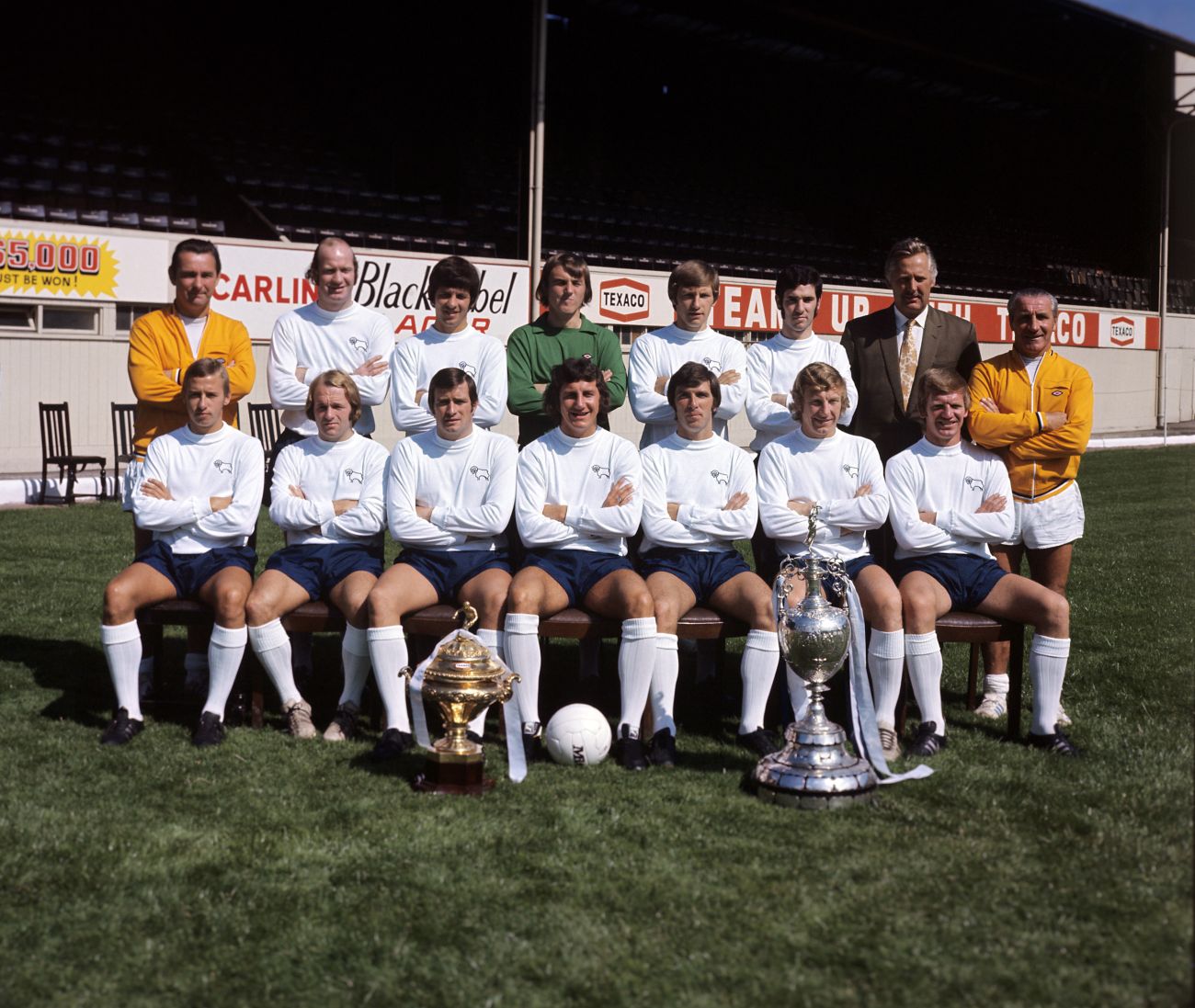
Whilst his stay at Elland Road was short-lived, O’Hare went on to enjoy further success with Nottingham Forest, winning the league and European Cup on two occasions before hanging up his boots in 1981. He still holds memories from his time at the Baseball Ground dear, and he was a visitor to Pride Park Stadium earlier this season.
“I went to the game against Peterborough United at home this season and I really felt the fantastic atmosphere at Pride Park,” he concluded. “Derby won the game with a late goal and I have always got more emotion about Derby, even though I work in the hospitality boxes at Nottingham Forest. I felt really emotional watching the game. The atmosphere again blew me away and people still want to talk to me about those famous days.
“A few people still recognise me, but it’s ‘No Hare’ now, that went a while ago! But it was a great day and a great experience so it was smashing. My memory isn’t great - I’ve not got dementia or anything like that, but I just don’t remember much of my career anymore. It’s a lot of water under the bridge and a lot of beer has been drank since but I had a great time and those days at Derby will forever remain special to me.”

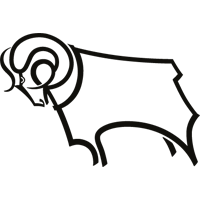
 3/1 To Win
3/1 To Win
